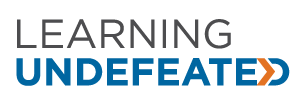See inside the Port of Corpus Christi’s PORT-Able Learning Lab, custom-designed by Learning Undefeated to raise awareness of maritime-related careers.
Students enter the Port of Corpus Christi’s intern headquarters where they will need to work together to solve puzzles using a project file that was left behind by their supervisor. Can they plan the project and meet their deadline in time? Time starts as soon as they arrive.
The Port of Corpus Christi’s Environmental Mission takes high school students on an immersive adventure using computational thinking and the practices of science and engineering to crack a series of puzzles to help the Environmental Team decide on mitigations for a new client site. From the moment they step inside this custom-built 22-foot shipping container, students experiment with augmented reality, game-based learning, and touchscreen walls, building their critical thinking, collaboration, and problem-solving skills.
Through progressive gameplay, students will focus on measures to protect wildlife in the area, diminish nuisances for residents, and reduce emissions. Participants will explore the different mitigation strategies for each and assess the strategy’s ability to meet the goal while also meeting certain criteria (cost, species population, and emissions). Puzzles include a planning simulation, and selecting from different materials, seasons, and environmental mitigation options to evaluate the effectiveness of the plan to meet the goals provided. Students also analyze and interpret data as they learn about emissions using graphs and migration patterns using augmented reality. Each 30-minute mission session accommodates up to 10 participants.
Onboard Game Experience Specifications
- Student Capacity: up to 10 participants
- Grade Levels: 9-12
- Experience Runtime: 25 min
- Average length of visit: one to two weeks per school
- Led by Learning Undefeated educators
Experience Goals
- For participants to become familiar with using practices of science and engineering, including asking questions and defining problems, analyzing, and interpreting data, using mathematics and computational thinking, creative problem solving, obtaining, evaluating, and communicating information
- For participants to understand critical thinking strategies such as divergent thinking, logic, reasoning, and to learn how to effectively work as a team
Learning Outcomes
- Students will be able to analyze and interpret data
- Students will be able to use basic math operations to solve a puzzle
- Students will be able to solve puzzles using computational thinking
- Students will be able to manipulate a model to understand
- Students will be able to make a conclusion and form an argument supported by evidence






